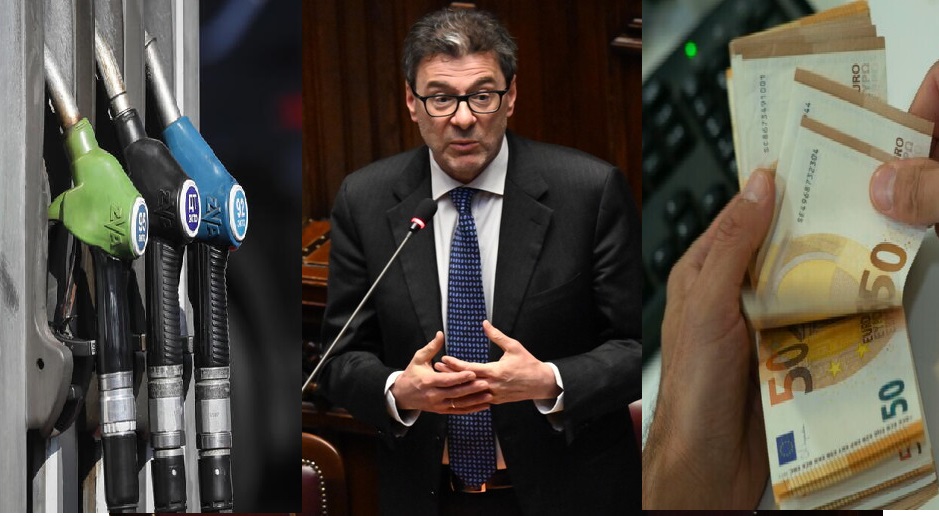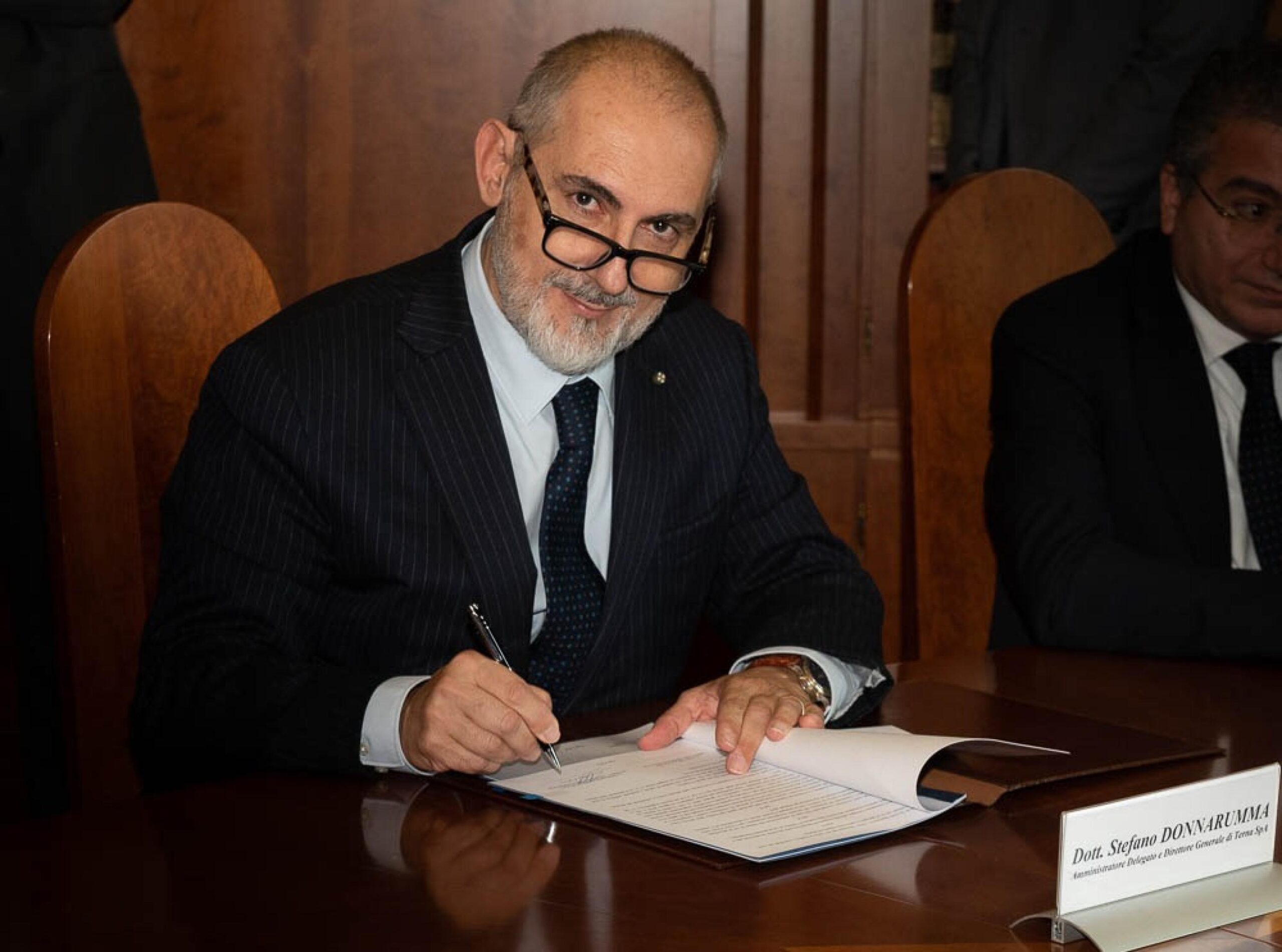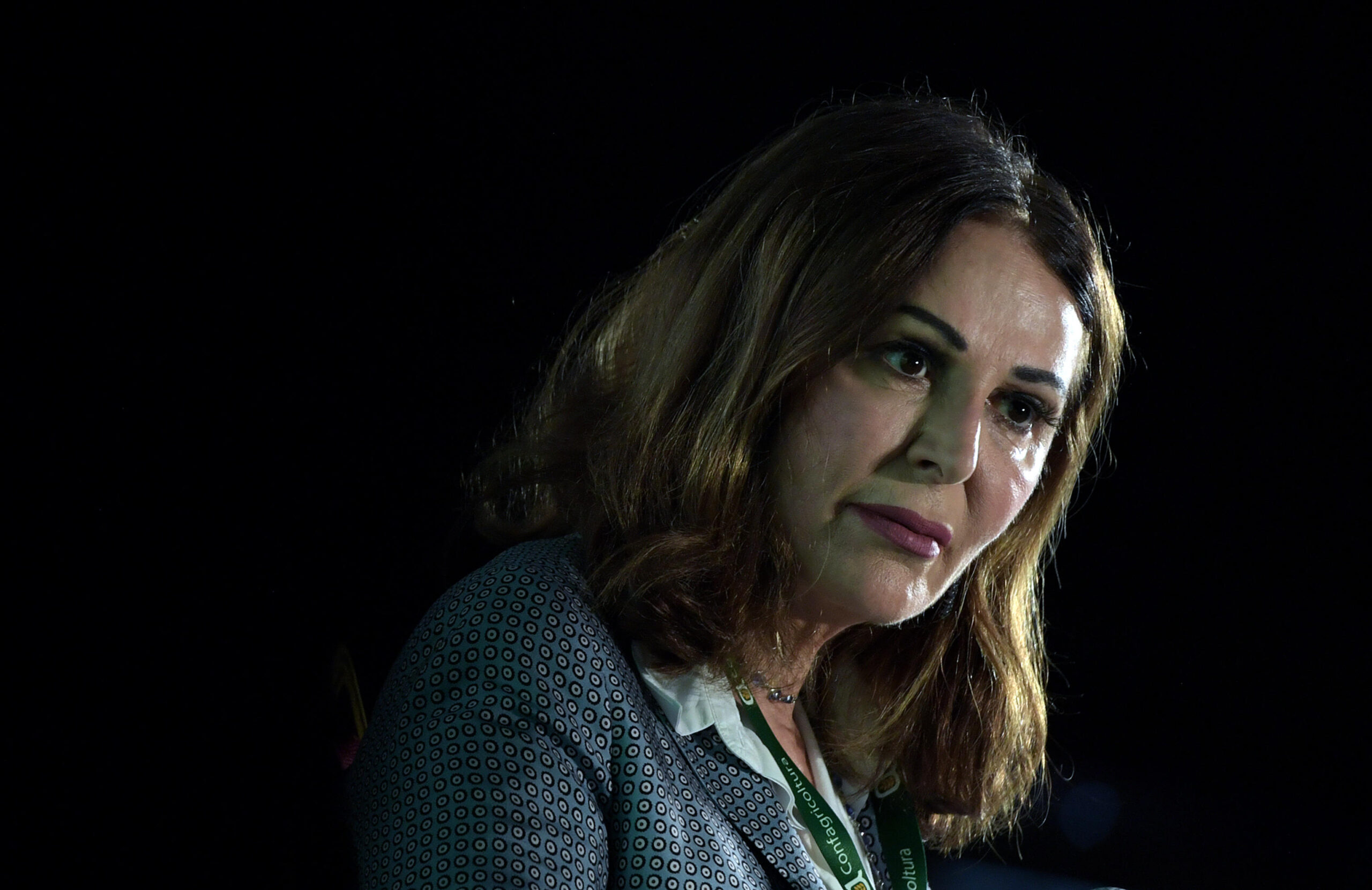The Ministry of the Economy is studying “remodulations” while the minister calls for “contributions for all”. Prime Minister Meloni's anger also concerns excise duties. Which according to her should be abolished. And instead…
The hypothesis of an increase in the IRES for those who earn more. The Robin Hood tax for finance. And increases in excise duties on petrol and diesel, more politely called “remodulations”. The Minister of the Economy Giancarlo Giorgetti caused the collapse of the stock markets yesterday, October 3, with his comments on the maneuver of “sacrifices and taxes”. And on the “call for contributions for all”. Then he denied it in the evening. Stating that there are no ideas for increasing direct taxes on individuals. But Giorgia Meloni's “surprise” filters from Palazzo Chigi. In these regions, we highlight the “recklessness” of a minister who addresses Bloomberg, a market-sensitive agency, to talk about new taxes. But among the Prime Minister, the nervousness is generated by excise duties. Given that she herself said in 2019 that they should be removed. And that with a remodulation of diesel, three billion could be obtained.
The new taxes
One of the hypotheses considered in via XX Settembre is the increase in corporate tax. Today, it is equal to 24% and joint stock companies, limited companies, cooperatives and mutual insurance companies must pay it. In addition to public bodies and trusts, but only for income produced in Italy. Second Republic the minister is considering a selective and progressive IRES surcharge. Yesterday, he cited article 53 of the Constitution: “Everyone is required to contribute to public expenditure according to their contributory capacity.” Taking into account the fact that “the tax system is based on progressive criteria”. What is it about? The explanation can be found in the tissue paper released in the evening by the ministry: “An effort will be requested from large companies operating in certain sectors in which profit has benefited in one way or another from favorable external conditions so that they can contribute.
The budget law
Giorgetti's idea is that this tax would save individuals and small businesses and surgically hit those who earned the most. Until yesterday, the government was talking about a solidarity contribution on additional benefits, almost as if to suggest that it was more or less voluntary. Which should have been 1 to 2% to have more resources to spend in the next budget law. Now he's aiming for something different. “To approve the maneuver, we will ask everyone to make sacrifices,” he said. And therefore not only banks, insurance companies, pharmaceutical giants and large companies, “but also businesses, individuals and public administration”. It would therefore be the Robin Hood Tax in the Giorgetti version. That of Giulio Tremonti under the Berlusconi government was declared unconstitutional in 2015. After bringing in around 4 billion euros to the treasury.
Excise duties
Then there are excise duties. “We demand that excise duties be gradually abolished,” the Prime Minister said in a video from a gas station in 2019. While Matteo Salvini has made them his strong point over the years, except “forgetting” to remove them one time in government between 2018 and 2019. In the Structural Budget Plan we talk specifically about the reorganization of the tax expenditures. A “vast program”, since since Renzi all the prime ministers have promised to want to reform the system of tax reductions which today makes taxes fairer with a view to a reform which should put more money in the pockets of families. But that never happened. At the PSB, however, Giorgetti says something very specific: he talks about “the alignment of prices for diesel and gasoline.”
Prices for diesel and gasoline
Today they have a different weight. That of gasoline is equal to 73 cents per liter, that of diesel reaches 62 cents. The increase in diesel would obviously mainly affect logistics, given that carriers primarily use this fuel. Consumer associations have calculated that the flat-rate realignment would lead to an overall tax increase of 3.1 billion euros. In January 2023, when the Meloni government did not renew the excise reduction desired by Draghi, the Prime Minister said: “I am still convinced that sooner or later we will be able to make a structural reduction in excise duties.” In the middle of the afternoon, the MEF affirmed that it was Europe which demanded the elimination of subsidies harmful to the environment. And that would include lower excise duties on gasoline compared to diesel.
Engines and pollution
There is a problem, or rather two. First of all, a tax is the exact opposite of a subsidy and the EU was talking about subsidies. And secondly, we wonder whether the diesel present in the cars currently on the road pollutes more or less than gasoline. Even if it emits less Co2 and the new engines pollute less. Because, however, they emit a greater quantity of fine particles and nitrogen oxides. The ministry then clarified that the intervention “will not result in the simplistic choice of raising excise duties on diesel to the level of those on gasoline”. But “a remodulation of both” will be carried out. This simply means that the price of diesel will be lower while the price of petrol will increase. However, if the effect of this change in costs is zero, the government will not have any additional money to devote to this measure. It is therefore clear that this will not be a zero-sum game. And someone is going to lose. Or it won't do any good.
“There is no alternative to a tax increase”
Meanwhile, Roberto Perotti, professor of economics at Bocconi University, tells La Stampa that the government has no choice. “Between 2020 and 2021, we have made spending commitments of four hundred billion euros, including the management of the Covid emergency, the Recovery Plan and the Superbonus. The result is that we can no longer even find five billion for health spending. » Perotti explains that “compensating for the reduction in contributions of the lowest incomes with tax increases is not the best solution. And I fear that it will not be possible to reduce spending: no government has the political strength to do so. So, barring a surprising increase in growth, taxes will remain to keep the books in order. »
Large companies and assets
Concerning large companies, Perotti emphasizes, because “it is the most feasible route. Everyone hates them, the banks too.” Or French-style wealth management: “To obtain sufficient income, you would have to displease a lot of people. The alternative is to displease a few for a negligible amount of income.”



